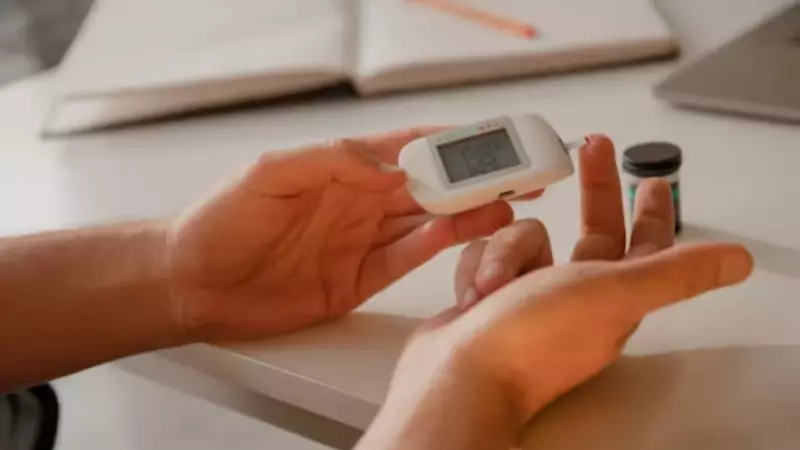
For millions of working professionals across India, managing diabetes while navigating demanding work schedules presents a significant daily challenge. The constant pressure of meetings, deadlines, and long hours often makes it difficult to maintain the consistent routine essential for effective diabetes control. However, with strategic planning and practical adjustments, it's entirely possible to keep your blood sugar levels stable while excelling in your career.
Mastering Your Meal Planning Strategy
Proper meal timing and composition form the cornerstone of effective diabetes management during work hours. Nutrition experts emphasize that skipping meals, particularly breakfast, can lead to dangerous blood sugar fluctuations that affect both health and productivity. Instead, plan for smaller, balanced meals every 2-3 hours to maintain consistent energy levels throughout the day.
When preparing your workday meals, focus on incorporating complex carbohydrates, lean proteins, and healthy fats. Traditional Indian foods like whole wheat chapatis, brown rice, dal, and generous portions of seasonal vegetables provide sustained energy release. Always keep healthy snacks such as nuts, seeds, or fresh fruit at your workstation to prevent reaching for sugary alternatives when hunger strikes unexpectedly.
Portion control remains equally crucial, especially during business lunches or office celebrations. Using smaller plates and being mindful of carbohydrate intake can help prevent post-meal blood sugar spikes. Remember that consistent meal patterns not only regulate glucose levels but also enhance cognitive function and work performance.
Staying Active in the Workplace
Regular physical activity plays a vital role in managing diabetes, even during the busiest workdays. For office workers spending long hours seated, simple strategies can make a substantial difference. Set reminders to stand up and move for at least five minutes every hour—whether it's taking a brief walk, stretching at your desk, or using the staircase instead of the elevator.
Consider incorporating short exercise sessions into your work routine. A 10-15 minute walk during lunch breaks or between meetings can significantly improve insulin sensitivity and help regulate blood sugar levels. Many corporate offices now provide standing desks or dedicated spaces for quick workouts, which diabetic employees should utilize regularly.
For those with more flexible schedules, scheduling workouts before or after work ensures consistency. Activities like brisk walking, cycling, or yoga not only help control diabetes but also reduce work-related stress, creating a positive cycle of better health and improved job performance.
Hydration and Stress Management Techniques
Proper hydration and stress control are often overlooked aspects of diabetes management that directly impact blood sugar levels. Dehydration can concentrate blood glucose, leading to higher readings, while stress triggers hormonal responses that increase blood sugar. Keeping a water bottle at your desk and drinking regularly throughout the day helps maintain optimal hydration.
Workplace stress management is particularly important for diabetic individuals. Practice simple breathing exercises during stressful moments, take short mental breaks, and prioritize tasks to prevent overwhelming pressure. Mindfulness techniques and brief meditation sessions during breaks can significantly reduce stress-induced blood sugar spikes.
Additionally, ensure you're getting adequate quality sleep, as sleep deprivation affects insulin sensitivity and can disrupt blood sugar control. Establish a consistent sleep routine even during demanding work periods to support your diabetes management efforts.
Monitoring and Medication Adherence
Consistent monitoring and proper medication timing are non-negotiable elements of diabetes control for working professionals. Keep your glucose meter easily accessible at work and establish regular testing times that align with your schedule. Modern continuous glucose monitors can be particularly helpful for busy professionals, providing real-time data without interrupting work flow.
Never skip or delay medications due to work pressures. Set multiple alarms if necessary, and keep emergency supplies of medications and snacks in your desk drawer or work bag. Inform a trusted colleague about your condition and what to do in case of emergency, particularly regarding hypoglycemia symptoms.
Regular communication with your healthcare provider about your work schedule and challenges can help tailor your diabetes management plan. They may adjust medication timing or dosages to better fit your professional demands while maintaining optimal blood sugar control.
By implementing these comprehensive strategies, working professionals with diabetes can effectively manage their condition without compromising their career ambitions. The key lies in planning, consistency, and making health a priority even during the most demanding work periods.






